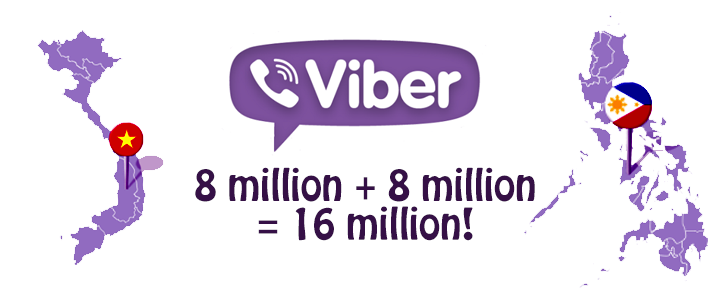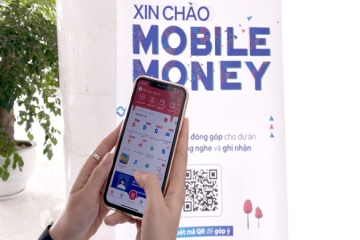Why did Viber close its representative office in Vietnam?
Explaining the decision, Viber representative in Vietnam – Ms. Nguyen Dang Quynh Anh - said the company was in the process of changing the operating strategy in Southeast Asia.

Viber will establish its headquarters for the region in the Philippines.
However, some telecommunications experts said that perhaps Viber no longer sees Vietnam as a "fertile" market, with a population of over 90 million.
Earlier, Viber and other OTT service providers were considered “threats” to domestic telecoms companies because free messages gradually took away their revenue. In 2013, revenues from voice services of mobile operators fell by 3-4% while the corresponding figure for text messages was 10-12%.
In the early phase of explosion, OTT businesses wanted to shake hands with telecom firms to share profits. However, they could not reach an agreement on benefits so local telecom firms rejected cooperation plans with OTT service providers.
"The call for cooperation between OTT service providers and telecom companies was mentioned a lot two years ago, but the interest of OTT operators was underestimated by local telecom companies. We have to spend a lot of money to develop applications but we do not earn much from them," said the manager of a local OTT service provider.
After a long time considering whether they should cooperate with OTT service providers or not, the three largest telecom corporations of Vietnam - Viettel, VinaPhone and MobiFone - stated to launch their own OTT products. So far two of them have turned the statement into reality. The remaining is about to launch its OTT service very soon.
IT experts said local telecom corporations design their own OTT products to take full advantage of their network and their market shares. For example, Mocha of Viettel has huge advantages from the 55.5 million subscribers of Viettel, while VietTalk of VinaPhone also has about 26 million subscribers.
"This may be the reason for Viber to see that it is unfeasible to cooperate with domestic telecom networks in the future. Meanwhile, revenue and profit remain a problem for OTT applications," said Dr. Nguyen Vuong Quoc Thinh, of France Telecom - Orange (France).
OTT service providers can earn profits from selling advertisements, online games, stickers, background pictures, music tones, etc. Viber does not post advertisements. Its revenue is expected to come from Viber Out service (call to any phone number that are not registered with Viber) and Sticker.
However, a representative of Viber Vietnam told VNExpress late last year that they had not earn revenue from these services.
An expert of MobiFone said the Vietnamese authorities are designing a number of policies to manage OTT applications and it may be another reason for Viber to close its office in Vietnam.
According to the draft circular on the management, provision and use of Internet-based calls and texting services of the Ministry of Information and Communications, foreign OTT service providers are required to base at least one host server in Vietnam and must have trade agreements with Vietnamese telecommunications companies licensed to provide Internet-based calls and texting messages.
OTT enterprises which charge fees must follow regulations on fee management and service quality that are applicable to traditional telecommunications services in Vietnam.
Domestic enterprises are allowed to charge fees for OTT services only if they are licensed to provide Internet-based calls and messaging services. If domestic and international companies offer free services, they do not need licenses to provide telecommunications services.
However, if their service attracts more than one million registered users, the companies must provide information such as the location of their headquarters, domain names and the address of the host server, as well as the number of calls and texts they handle, to the ministry before January 30 of each year.
The regulations will be applied to foreign OTT service providers in Vietnam such as Viber, WhatsApp and Line.
Viber makes users pay for calls to mobile phones and fixed phones with its Viber Out service.
WhatsApp, which Facebook purchased last February, offers free services in the first year and charges VND21,000 from the second year onwards.
Line of Japan offers free calls and messaging services and charges fees for value-added tax services such as selling of packages of stickers and themes.
By the end of 2014, there were an estimated 12 million Viber users, four million Line users and 10 million Zalo users in Vietnam.
Vietnam Net




